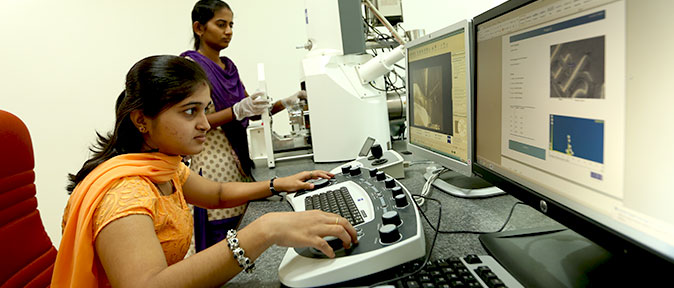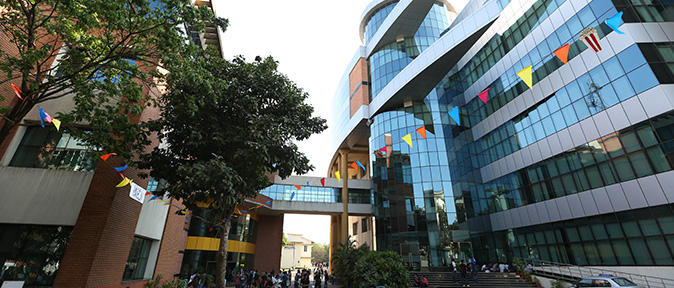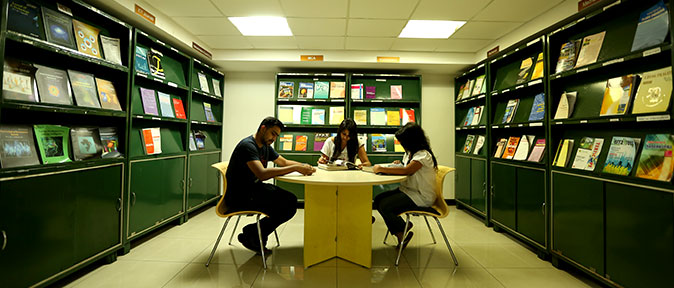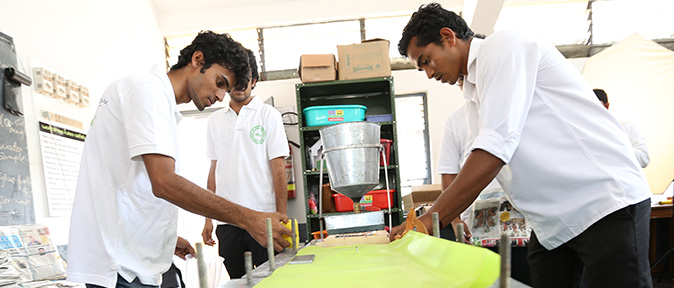Electronics and Instrumentation Engineering - Overview
BTech in Electronics & Instrumentation Engineering is a multi-disciplinary program offering expertise in mathematics, physics, electronics, instrumentation, control and automation. It primarily focuses on the principles of sensing, acquisition, processing of physical parameters for monitoring and control of systems leading to design and configuration of automated systems.
Highlights of the program
- The curriculum is updated periodically to meet the industrial needs in consultation with industrial and academic experts.
- Academic program is well supported with state-of-the-art laboratories in digital system design, process control, virtual instrumentation, automation, etc.
- Department is the center for LabVIEW Academy and Cyber Physical System.
- Students are exposed to research culture leading to publication and innovation.
- Regular conduction of conferences, workshops, invited lectures by industry/academic experts keep the students abreast of the latest practices.
- Opportunities for higher studies in allied fields in universities within the country and abroad.
- Employment opportunities in major core companies like RELIANCE, ABB, L&T, GE, JACOBS, HONEYWELL, FORBES MARSHALL, JINDAL, MAHINDRA, MERCEDES, KPIT, and many more.
DEPARTMENT OF INSTRUMENTATION AND CONTROL ENGINEERING PROGRAM OUTCOMES (POs)
PO1:Engineering knowledge
|
Apply the knowledge of mathematics, science, engineering fundamentals, and an engineering specialisation for the solution of complex engineering problems.
|
PO2: Problem analysis
|
Identify, formulate, review research literature, and analyse complex engineering problems reaching substantiated conclusions using first principles of mathematics, natural sciences, and engineering sciences.
|
PO3: Design/development of
solutions
|
Design solutions for complex engineering problems and design system components or processes that meet the specified needs with appropriate consideration for public health and safety, and cultural, societal, and environmental considerations.
|
PO4: Conduct investigations of complex problems
|
Use research-based knowledge and research methods including design of experiments, analysis and interpretation of data, and synthesis of the information to provide valid conclusions.
|
PO5: Modern tool usage
|
Create, select, and apply appropriate techniques, resources, and modern engineering and IT tools including prediction and modelling to complex engineering activities with an understanding of the limitations.
|
PO6: The engineer and
society
|
Apply reasoning informed by the contextual knowledge to assess societal, health, safety, legal, and cultural issues and the consequent responsibilities relevant to the professional engineering practice.
|
PO7: Environment and sustainability
|
Understand the impact of the professional engineering solutions in societal and environmental contexts, and demonstrate the knowledge of, and the need for sustainable development.
|
PO8: Ethics
|
Apply ethical principles and commit to professional ethics and responsibilities and norms of the engineering practice.
|
PO9: Individual and team work
|
Function effectively as an individual, and as a member or leader in diverse teams, and in multidisciplinary settings.
|
PO10: Communication
|
Communicate effectively on complex engineering activities with the engineering community and with the society at large, such as being able to comprehend and write effective reports and design documentation, make effective presentations, and give and receive clear instructions
|
PO11: Project
management
and finance
|
Demonstrate knowledge and understanding of the engineering and management principles and apply these to one’s work, as a member and leader in a team, to manage projects and in multidisciplinary environments.
|
PO12: Life-long learning
|
Recognise the need for, and have the preparation and ability to engage in independent and life-long learning in the broadest context of technological change.
|
Electronics and Instrumentation Engineering Programme Educational Objectives (PEO)
Graduates in Electronics and Instrumentation Engineering will be able to:
- PEO 1: Proficiently understand and apply, engineering and mathematical concepts of Sensing, Processing, Communication, Computation, modelling, navigation, and Control to complex engineering systems and pursue higher studies.
- PEO 2: Demonstrate innovative research capabilities for upcoming technologies in electronics, instrumentation, fault tolerant control, automation and high integrity systems.
- PEO3: Synergistically work towards creating opportunities and innovative solutions through experiential learning in diverse cultural and working environments.
- PEO4: Inculcate a sense of ethics, professionalism, and effective interpersonal skills.
- PEO5: Cultivate lifelong skills needed for a continued successful professional and entrepreneurial career.
Electronics and Instrumentation Engineering Programme Specific Outcomes (PSO)
Graduates in Electronics and Instrumentation Engineering will be able to:
PSO_1: Apply the engineering knowledge to analyse and evaluate the fundamental concepts of instrumentation to varied measurement systems and control.
PSO_2: Model and Analyse linear and non-linear systems and develop automatic control systems for the given specifications in the allied field of engineering.
PSO_3: Design and develop electronic circuits and systems used in industrial and other automation systems
Outline - BTech in Electronics & Instrumentation Engineering
BTech in Electronics & Instrumentation Engineering course outline (2018 Scheme)
BTech in Electroncis & Instrumentation Engineering course outline (2022 Scheme)
Key Dates & Deadlines
15
Mar 15 26
Mar ' 26
Last date to Apply
'
Tentative Course Commencement Date
Indian Students Apply
Manipal Academy of Higher Education not only caters to one’s academic needs, but also lays emphasis on all-round development of its students.
International Students Apply
Manipal Academy of Higher Education not only caters to one’s academic needs, but also lays emphasis on all-round development of its students.
Indian Students Apply
Manipal Academy of Higher Education not only caters to one’s academic needs, but also lays emphasis on all-round development of its students.
International Students Apply
Manipal Academy of Higher Education not only caters to one’s academic needs, but also lays emphasis on all-round development of its students.
Electronics and Instrumentation Engineering Course Duration
4 Years (8 semesters).
Facilties

Laboratories
World-class laboratories give learning a practical dimension

Innovation Centre
State-of-the-art Innovation Centre to facilitate multi-disciplinary research

Libraries
Libraries have excellent resources for reference and study

MUTBI
Paper tree - A green initiative by MIT students of MUTBI

Computing Facility
Wi-fi campus with modern computing and digital facilities






